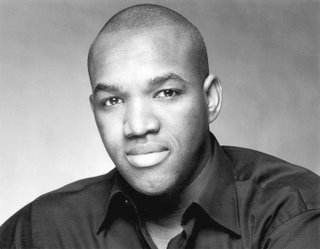Tancredi: Sounds Good

If the Washington Opera’s L’Elisir d’Amore is an opera with bad but funny drama, Rossini’s Tancredi is an opera with bad and dour drama. The former – if well done – can be funny in the way a Marx Brothers film is, but there is nothing that can redeem the hackneyed story line and happy-(up)ended tragedy that makes the story of Tancredi tank so hard. In fact, it’s not worth even summarizing the ‘plot’ here – a plot only marginally better than the one from Esclarmonde. One imagines the composer at work, casually remarking over his shoulder “Oh, I ran out of story 30 minutes ago, but I have so much music left!” But not to throw out the child with the bathwater: only because the story stinks does not mean that Tancredi should not be performed in concert every so often. That music – or to be more precise: the vocal element – is quite beautiful, after all. And performing it in that way is exactly what the Washington Concert Opera did last Sunday at the Lisner Auditorium. It was a stunning feast for the ears, as the principal singers were glorious, led by a stunning Stephanie Blythe in the title role. Hardly less impressive was the beautiful Sarah Coburn – a slender thing, looking not unlike an anorexic Renée Fleming might – who could sing like a bird and then turn that into steel in an instant, by adding natural force. Even next to Ms. Blythe, her Amenaide did not sound diminished in quality or volume. Some interesting low sounds from mezzo-soprano Linda Maguire spiced a fine performance; Lisa Eden’s only aria as Roggiero was very nicely performed and her recitatives were well prepared and freshly delivered. A small role, but charmingly filled with this recent UMD graduate.
But not to throw out the child with the bathwater: only because the story stinks does not mean that Tancredi should not be performed in concert every so often. That music – or to be more precise: the vocal element – is quite beautiful, after all. And performing it in that way is exactly what the Washington Concert Opera did last Sunday at the Lisner Auditorium. It was a stunning feast for the ears, as the principal singers were glorious, led by a stunning Stephanie Blythe in the title role. Hardly less impressive was the beautiful Sarah Coburn – a slender thing, looking not unlike an anorexic Renée Fleming might – who could sing like a bird and then turn that into steel in an instant, by adding natural force. Even next to Ms. Blythe, her Amenaide did not sound diminished in quality or volume. Some interesting low sounds from mezzo-soprano Linda Maguire spiced a fine performance; Lisa Eden’s only aria as Roggiero was very nicely performed and her recitatives were well prepared and freshly delivered. A small role, but charmingly filled with this recent UMD graduate. The most important male role, Argirio, was sung by the up-and-coming star Lawrence Brownlee. Close your eyes and you hear a magnificent voice, one, at any rate that can negotiate difficult scores with ease and sound voluminous at the same time. Plenty of agility was used to good effect in the recitatives. His haughty, flamboyantly contumelious stage manner might be appalling, but that, one hopes, will mature away as he becomes more secure in his abundant skill and better trained at employing it. Only on occasion, whenever pushing a little too hard, did his voice narrow. Bass David Langan who sang Orbazzano, too, had a very good voice – but unfortunately didn’t know how to employ it well. With a strong top and bottom range that occasionally hints at a nice, open sound, he sadly ended up sounding bloated and stiff, lumpy in the recitatives to a point where he was comically awkward. Much promise, but he turned out the only weak spot in the cast.
The most important male role, Argirio, was sung by the up-and-coming star Lawrence Brownlee. Close your eyes and you hear a magnificent voice, one, at any rate that can negotiate difficult scores with ease and sound voluminous at the same time. Plenty of agility was used to good effect in the recitatives. His haughty, flamboyantly contumelious stage manner might be appalling, but that, one hopes, will mature away as he becomes more secure in his abundant skill and better trained at employing it. Only on occasion, whenever pushing a little too hard, did his voice narrow. Bass David Langan who sang Orbazzano, too, had a very good voice – but unfortunately didn’t know how to employ it well. With a strong top and bottom range that occasionally hints at a nice, open sound, he sadly ended up sounding bloated and stiff, lumpy in the recitatives to a point where he was comically awkward. Much promise, but he turned out the only weak spot in the cast.
Charles T. Downey, Washington Concert Opera (DCist, April 4) Tim Page, 'Tancredi': With WCO's Polish, Neglected Rossini Gem Sparkles (Washington Post, April 4) T. L. Ponick, 'Tancredi' excellent without distractions (Washington Times, April 4) |
There is a temptation to say that the quality of the vocal performance – not just Ms. Blythe – was surprisingly high… but it really should not be a surprise anymore to find great singing at the WCO; not after last season’s performances. Indeed, the Washington Concert Opera is becoming more and more the place in town where voice aficionados go – or, if they don’t, should go. Mr. Walker and his colleagues have a knack for finding the best singers for their money. Actually, they tend to find much more than that: there is another opera company in town that surely throws several times the amount of money at their casts than the WCO can afford – and they rarely get similarly pleasing results. (Sadly, there are no repeat performances – otherwise you could enjoy two daft – yet greatly enjoyable – operas this month.) Bravi!




















































